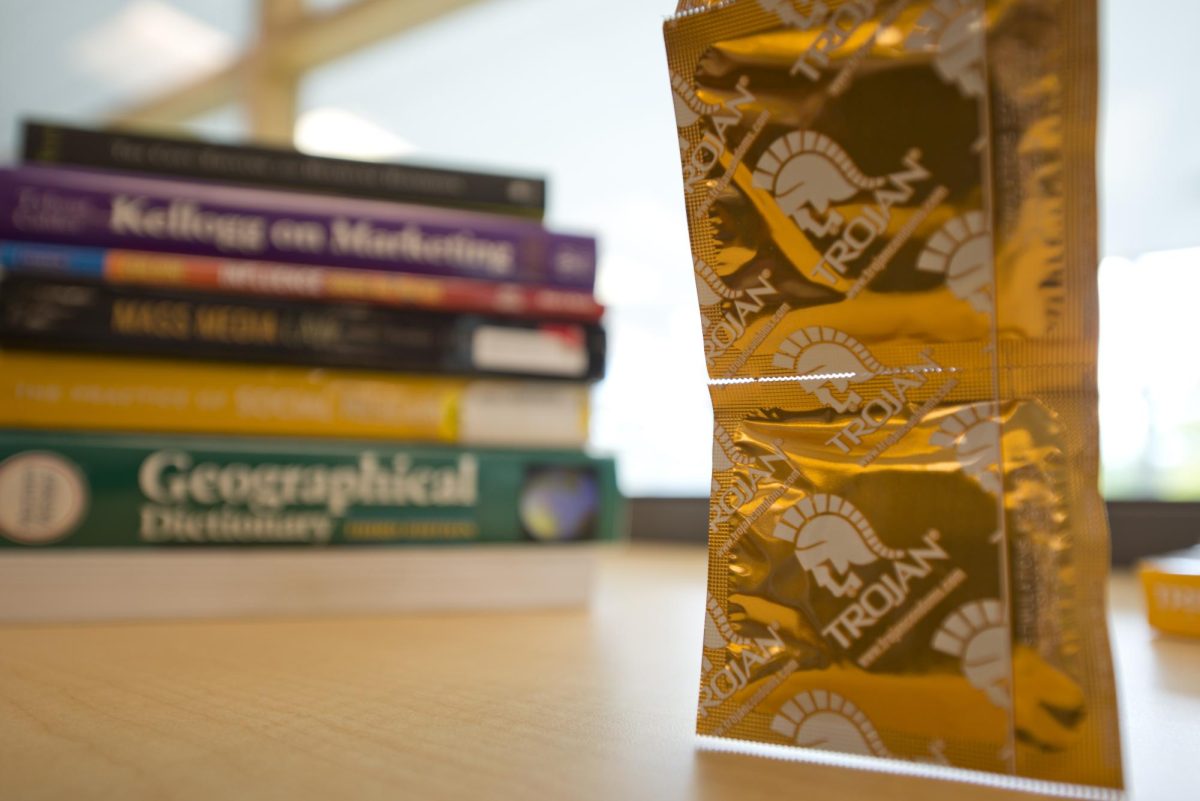In H.B. 112, Rep. Tim Jimenez (R-Tooele) proposed amendments to sex education in Utah public schools, emphasizing a need for parental consent and ensuring students’ grades remain unaffected if parents opt their students out. According to the bill, if a school exempts a student from the sex education requirement, the parent must collaborate with the student’s teacher or school to provide the student’s sex education instruction.
Sex education covers crucial topics like sexually transmitted diseases, including human papilloma viruses, which are important for teenagers to learn about before becoming sexually active. For some students, school-provided sex education may be their only exposure to these topics as they may struggle to discuss sexual inquiries with parents or guardians.
Every public school student deserves access to sex education, regardless of parental consent, for their future health and well-being. Students have the right to make decisions to protect their bodies.
Sex Education in Utah
Utah’s public school sex education curriculum covers not only sexual relationships, pregnancy and marriage, but also broader topics directly related to students’ health, including contraception, HIV/AIDS and STDs.
However, recent data from Utah’s sexual health landscape is concerning. The state has seen a 291% increase in STD cases per 100,000 residents between 2000 and 2020, making it the second-highest among the 31 states with surging STD rates. Additionally, only 61.4% of Utah adolescents are adequately vaccinated for HPV, just below the national rate of 61.7%.
These statistics highlight the seriousness of STD infection rates and the low awareness of HPV vaccination in Utah. However, the proposed bill fails to address this issue and instead hinders opportunities for students to learn about it, which is deeply concerning.
The Hidden Side of Opt-In Policy
The bill proposes an opt-in policy, requiring parental permission for students to attend sex education, unlike opt-out policies in 34 states where all students can participate unless parents object. This approach limits students’ access to sex education, hindering their ability to learn how to care for their bodies.
“I personally feel that it should be an opt-out policy,” said Deanna Kepka, a Huntsman Cancer Institute investigator and associate professor in the College of Nursing at the University of Utah. “Adolescents should understand what’s happening with their bodies during puberty, and having more information allows them to take better care of themselves and make better choices.”
Hailey Nam, a freshman majoring in biology at the U who graduated high school in Utah, expressed, “During that age, students get to form their own identity and thoughts and want to decide everything on their own as independent individuals.”
Another concerning aspect of the opt-in policy in Utah is that students who cannot obtain parental consent for sex education in public school must receive sexual education from their parents or guardians. However, this policy is unhelpful from the students’ perspective.
“I would be very discouraged to talk about STDs and HPV to my parents. I think it’s a sensitive topic to talk with them as it gets too personal,” Nam said.
Attrayee Bandyopadhyay, a sociology graduate student at the U with expertise in population studies from India, emphasized the potential for misinformation when parents or guardians provide sex education. “Sometimes, parents and guardians may not be adequately trained to provide proper education to their children. It is always better to receive quality education from trained professionals,” she said.
Bandyopadhyay also emphasizes the significance of peer learning in sex education, explaining, “Students learning alongside peers of the same age and circumstances can create a more inclusive space for everyone to understand each other and obtain the right information together.”
Nam also highlighted the value of peer learning in sex education.
“Compared to learning from parents, discussing with peers allows us to feel more connected and openly discuss the topic,” she said.
Health Risks Behind the Lack of Sex Education
Eventually, insufficient education on STDs and HPV can lead to high health risks. According to the Utah Department of Health and Human Services, 79 million Americans contract HPV in their late teens and early 20s, with 99% of cervical cancer cases attributed to HPV. Untreated STDs like chlamydia and gonorrhea can also hinder pregnancy and increase the risk of contracting HIV.
“If you ask any of those cancer patients if they could have prevented their cancer with a vaccine, I guarantee you they would say yes. We need to reconsider this policy and its potential negative health consequences for kids not understanding how to protect themselves from sexually transmitted infections,” said Kepka.
The Utah government needs to prioritize students’ access to sex education in public schools. Limiting this access hinders students’ ability to learn about healthy sex lives and prevent future health risks. Students deserve the opportunity to openly discuss and learn about their bodies with their peers, just like they do with other subjects. If the government truly cares about Utah’s teenagers and young adults, it should empower students to choose what they learn.




John Hedberg • Feb 13, 2024 at 1:35 pm
I’m just going to re-post this. Those of you who may have already read it, please feel free to skip it. Needless to say, after my own lived experience, kids don’t need their lives bruised, damaged, or ruined by all the liabilities and burdens which come along with early sexualization~ :
Coming from a drug- and sex-excursion background (Mom was a drug addict, Dad had addiction-related emotional issues, and both parents were sexualized at a very early age, which is most likely why it began), and growing up in ultra-Liberal Eastern Massachusetts, it’s easy for me to see the massive number of lives damaged and ruined by emotional scars and addictive behaviors that come along with early sexual awakening. The brain is evolutionarily wired for reproduction even in the worst circumstances, and so sexual gratification has an opioid-like effect (literally) on human behavior. Even mature adults will crash and burn pursuing serial sexual encounters, which overwhelms their lives, causing situational damage and emotional scarring, and one kind of addictive behavior usually brings along other forms of addiction, as my own family clearly shows.
I grew up in a group who were sexually active in our early teens, among a culture of parents who sowed their sexual oats with remarkably little thought to any consequences from that addictive behavior, consequences to their partners, consequences to their futures, even consequences to their innocent children who were entirely powerless to take care of themselves while their parents’ pleasure-addictive emotional firestorm burned itself out as their young lives burned up around them.
Handling emotional intensity takes maturity, which is why we can’t drive before 16 or 17, vote before 18, or drink alcohol before we turn 21. Massachusetts had a famously deadly experiment lowering the drinking age to 18, and my high school had memorials to the dead juniors and seniors who died on the roads and at parties before the 21-year law was restored. This is why Mothers Against Drunk Driving (MADD) originated.
Sex is literally as addictive as opioids. Family and friends who started too early became addicts of many different types, with lives littered with ruin and needless suffering. Too many family and friends attempted suicide, many successfully.
Religion is not the reason sexual awakening is restricted for minors. It’s all the dead and damaged lives from “friendly fire” in the war for “sexual freedom”, deliberately ignoring the consequences of our biology, our psychology, and the effect on all the people around us who love us and go on the ride with us as we vector straight towards that last stationary object at high speed.
Adults already have sexual freedom. Leave kids alone, so they can each figure out their own best path in their own way, without all the addictive emotional baggage, without excess trauma and damage, and without being taken advantage of.
Just something to think about, with Love.